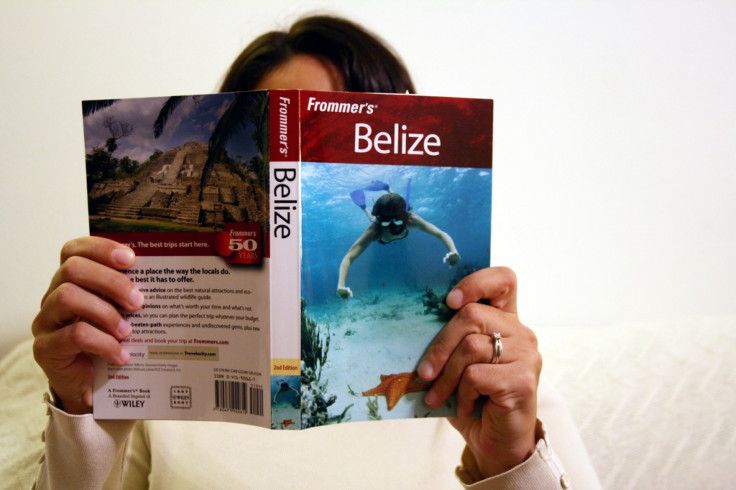Frommer’s To Publish Guidebooks Again Following Ugly Divorce With Google

Despite the shift from print to digital; despite the wikis, Yelps and TravelAdvisors; and, perhaps most of all, despite an unhappy divorce that left the once revered guidebook empire void of content, Arthur Frommer triumphantly plucked his fading brand out of the Google trash bin and announced its return this week.
The New York Times broke the news Monday that Arthur and his daughter Pauline Frommer would resume publishing books this fall under a new partnership with Publishers Group West, part of the Perseus Books Group.
“I feel like I’m starting all over again,” Arthur Frommer told the newspaper. “I’m working hard to bring [the guidebooks] back to what they were.”
Under FrommerMedia, the octogenarian will relaunch with 20 titles in a new series called “EasyGuides” and 10 revised and updated editions from the Frommer’s “Day-by-Day” series, which was previously released under Wiley. Both are expected out on paper and as e-books between October and December.
The father-daughter team will be co-presidents of FrommerMedia and have set an ambitious goal of 80 titles in print by the end of 2014. But it will be an uphill battle to get the brand back to where it once was as America’s favorite guidebook.
The Frommer’s saga is long and complicated. The initial guidebooks grew out of Arthur Frommer’s 1957 best-seller, which advised Americans how to visit Europe on $5 a day. The brand was sold to Simon & Schuster in 1977 and acquired by John Wiley & Sons in 2001. By the time of its $23 million sale to Google int August, Frommer’s offered more than 350 guidebooks in print.
A naïve Frommer said he was “delighted” about the new energy and resources at Google that would “allow the Frommer’s brand to reach new levels of popularity.” But there were signs from the beginning that Google had little interest in maintaining the print publications, the Frommer’s website or anything other than the content, which it integrated (unattributed) into Google+.
Google removed the bookstore from Frommers.com in September, and by December, all Frommers.com writers left the site with the exception of Frommer himself. By March of this year, Google had ceased production of all printed publications bearing the Frommer’s brand, and by April, Frommer purchased back the rights to his name for an undisclosed price.
A Google spokesperson confirmed the deal this spring in an email to International Business Times, but didn't comment on the terms. “We can confirm that we have returned the Frommer's brand to its founder and are licensing certain travel content to him," the spokesperson said.
"We’re focused on providing high-quality local information to help people quickly discover and share great places, like a nearby restaurant or the perfect vacation destination. That's why we've spent the last several months integrating the travel content we acquired from Wiley into Google+ Local and our other Google services.”
Frommer’s reenters the print arena at a time when most guidebook publishers are getting out. Lonely Planet, which BBC Worldwide sold to newcomer NC2 Media earlier this year, announced plans to “marry the world’s greatest travel information and guidebook company with the limitless potential of 21st-century digital technology.”
Statistics suggest that Lonely Planet’s vision may be advantageous. U.S. retailers sold just 7.97 million books in the adult nonfiction/travel category last year, a drop of 19 percent from 2011 and 27 percent from 2010, according to Nielsen Bookscan.
“Use of printed travel guides have been on the decline for some time,” Douglas Quinby, principal analyst at PhoCusWright Inc, explained to IBTimes when Frommer’s first announced its split from Google in April. “There is still a market -- fewer than one in five travelers use them today during the shopping phase, and even less in destination selection -- but it's only getting smaller.”
Quinby said some of the losses could presumably be mitigated by an increase in digital downloads, but the growing surplus of alternative content on the Web from TripAdvisor to Wikivoyage, Yelp and amateur blogs is certainly troubling for the industry.
“Online sources of information have been replacing traditional print media sources, and now increasingly mobile solutions are stepping in,” he explained. “Many app providers are smart, too, around roaming charges. For example, TripAdvisor offers destination guides where you can download guides by city in advance and store them locally so you don't need online access when traveling.”
For its part, Frommer’s plans to publish smaller books such as the “EasyGuides” written by locals who are experts on the region they cover, unlike, say, bloggers and yelpers. It also plans to offer apps and e-books and invest in its digital strategy. Its journey back from near-certain demise will, no doubt, be long and hard. But journeys are a Frommer’s specialty.
© Copyright IBTimes 2024. All rights reserved.






















